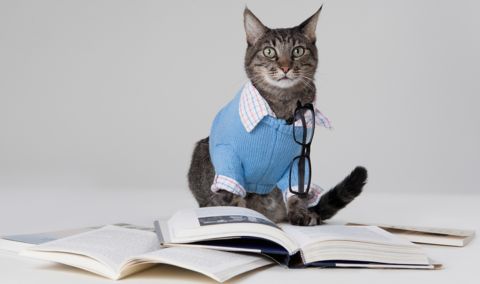Education
AVHTM will be working hard to bring educational materials to the veterinary community. Keep checking back for updates and new resources that are available to the public.
2025 AVHTM Lectures at the ACVIM Forum
June 21, 2025
- Anemia and transfusions on a budget: Spectrum of Care approach to blood loss. Emily McCobb and Liz Rozanski, in person, 1 hour.
- The changing landscape of antithrombotic medications in veterinary medicine: updates from CURATIVE. Ben Brainard, in person, 1 hour.
- A JAK’ed up hematocrit: updates on erythrocytosis in companion animals. Ann Hohenhaus, in person, 1 hour.
- Individualized approach to anemia in feline chronic kidney disease. Jessica Quimby, in person, 1 hour.
AVHTM SIG at the ACVIM Forum
June 20, 2025 - 6:30 - 9:30 pm
- Program Title: Do we need to change TRACS? Questions generated by application of the consensus statement to a prospective patient population, hosted by Dr. Georgina Hall and Dr. Karen Humm.
In-Person Presenter: Dr. Georgina Hall became a diplomate of the American College of Emergency and Critical Care in 2023, having completed her residency at the Royal Veterinary College, London. She currently works in a large private referral hospital near Cambridge, UK. George enjoys supervising residents and encouraging new interns to embrace ECC. Her research interests include transfusion medicine and acute kidney injury.
Virtual Presenter: Dr. Karen Humm is a Professor in Transfusion, Emergency and Critical Care Medicine at the Royal Veterinary College in the UK where she has worked for almost 20 years. She is the Director of the Transfusion Medicine Service and Co-Director of the Emergency and Critical Care Service.
AVHTM Master Series: Veterinary Blood Banking Basics and Beyond
August 16 - 17, 2025
This two-day, intensive lecture series and workshops is designed to accommodate all levels of veterinary blood bankers, though it is specifically geared towards the novice blood banker. Attendees will participate in hands-on live canine and feline donor collection and blood processing procedures, fractionating blood into various components. Topics covered in lecture and wet labs will include canine and feline donor selection and screening recommendations, collection techniques, component processing procedures and various blood typing and crossmatching techniques. Blood product administration and transfusion medicine reviews will round off this education packed weekend. Advanced classes from leaders in the industry will enhance the Master Series and create a well-rounded event for everyone.
Cost: $1,750.00
Click here to learn more: https://www.avhtm.org/master-class/
Join us at the AVHTM SIG in Louisville KY in June! Click here for more information: ACVIM SIG
Come back and visit us again!